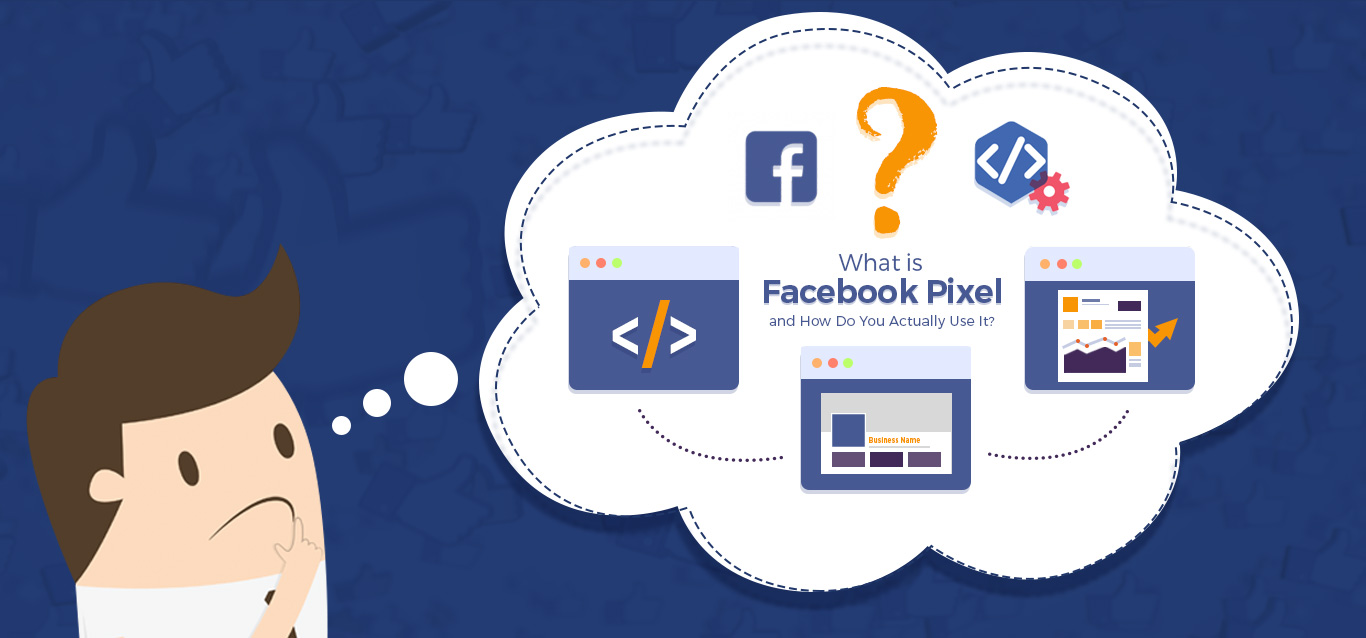If you want to understand your audience, the most important aspect to look into is data. However, there isn't just one set of data which is relevant to all individual businesses, which is why you need to gather your own data to develop the successful marketing strategies you need to build your business and audience.

One of the things to look into is Facebook Pixel, which helps you become more knowledgeable on your audience, from their behaviors and what they prefer. This will help you collect all the information you need to create the next step.
But what is Facebook Pixel and how does it benefit you and the business? I'll show you all about it!
What Is Facebook Pixel?
Before anything else, let's first look into what Facebook Pixel is!
Facebook Pixel is a kind of code that you put on your website, which has you track conversions based on Facebook ads. It also optimizes ads based on its collected data, building target audiences for any future ads, and remarkers to the proper leads (which are people who have already taken action on your website!).
How does it work?
Facebook Pixel places and triggers cookies, which tracks users when they interact with both your Facebook ads and website.
This tool is best used for those who are using Facebook ads or plan to use it in the future. It offers a host of benefits and is pretty straightforward to use. I'll be showing you more about that in the best sections!
How Does Facebook Pixel Work?
So, what are the exact benefits Facebook Pixel has to offer for your business and ads?
Track Your Conversions
This tool will help you monitor how your audience interacts with the business' website after they view the ad posted on Facebook. It even tracks customers based on what devices they use so you can refine your ad strategy.
Remarket
Through the pixel tracking data, you'll be able to show targeted ads to those who visited your site already. It can help lead people back to your website, such as showing people ads for the products they were looking at.
Create Audiences and Relevant Engagement
Using the targeting data, Facebook will be able to show the ads you post to audiences who have similar interests and demographics of those who interact with your website, which helps widen your base of potential customers.
Run Effective Advertisements
Facebook pixel can help make ads even more effective through improving its quality and targeting an audience that would be interested in it. It will ensure that ads are seen by those who would want to take action.
Understand Your Audience Better
You can collect insights of current and potential customers because of Facebook Analytics, which identifies the growing and purchasing activities of whoever visits your website. That way, you know what to restock and what products to focus on selling.
Improved Shopping Experience
The pixel can have you identify shoppers who browse your product selection, with you being able to make suggestions and show the much-needed information for a better user and shipping experiences. It will help improve your website and business, with customers wanting to come back for more.
How to Use Facebook Pixel
Now that you're familiar with what Facebook Pixel is and the benefits it has to offer, how can you use it to your advantage? Here are the tips and steps to follow:
Standard Events
There are various standard events you can use by copy-pasting the Facebook events code from Pixel:
• View Content
• Search
• Add to Cart
• Add to Wishlist
• Initiate Checkout
• Add Your Payment Information
• Make the Purchase
• Lead (someone who signs up for trials or takes action on your website is a lead)
• Complete Registration
Custom Conversions Events
Instead of standard events, you can opt to use Facebook Conversions instead, which is to help gather more specific details compared to the standard events.
Custom conversions would use URL rules, basing it on URLs and its keywords. You will be able to use Pixel to track and record the number of views of specific products and services on your website, rather than tracking the views of all website content.
Placing Facebook Pixel on Your Website
You can add Facebook Pixel to your website by following these steps:
- Create your pixel from Facebook Ads Manager. Name the pixel and click next after accepting the terms.
- Add your code to the business' website, pasting it in the header code of your site. Paste this on all pages or your entire template.
- Copy the event code based on what actions you want to track. Paste the event code in appropriate locations of the website page.
- Confirm that Facebook Pixel works by downloading the Facebook Pixel Helper extension and visiting the webpage where you added to the code. It will then signify if the code works or if you need to make corrections.
Wrapping It Up
Through using effective tools like Facebook Pixel, you are able to know your audience better for the specific marketing strategies that cater to them. That way, your audience is happy and your sales will be able to improve, resulting in a successful business.
Hopefully, this article on what, why, and how to use Facebook Pixel helped you out! So don't wait any longer and start looking into this platform (or use a Facebook Pixel helper) today!
If you have any questions or want to share your tips and experiences on using Facebook Pixel, then comment below. Your thoughts are much appreciated!
0 Comment(s)